I. Introduction

As artificial intelligence continues to reshape the creative landscape, AI-generated music has emerged as a particularly contentious battleground between technological innovation and artistic authenticity. While some celebrate the democratization of music creation through AI tools, others raise serious concerns about the implications for human creativity, artistic expression, and the music industry’s future. Whether you’re a musician, music lover, or simply someone interested in the intersection of technology and art, understanding these objections is crucial as AI-generated music becomes increasingly sophisticated and prevalent in our daily lives. From questions of copyright and artistic integrity to deeper philosophical debates about the nature of creativity itself, the controversies surrounding AI music challenge us to reconsider what makes music truly meaningful and valuable in our society.
A. Overview of AI in Music Production
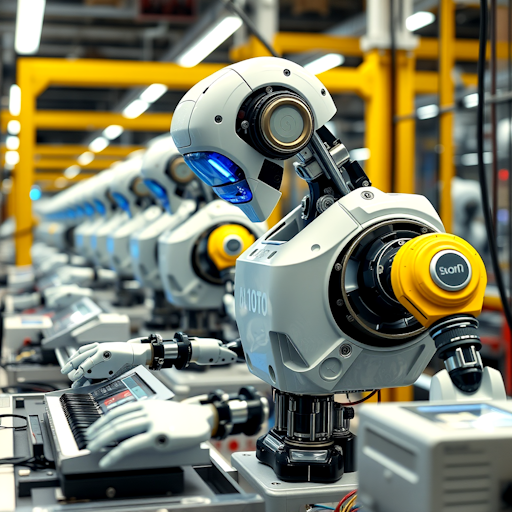
Artificial Intelligence has rapidly transformed the landscape of music production, introducing sophisticated algorithms capable of composing melodies, generating harmonies, and even emulating specific artists’ styles. These AI systems, powered by machine learning models such as deep neural networks and natural language processing, analyze vast databases of existing music to understand patterns, structures, and relationships between musical elements. From basic MIDI generation to complete song creation, AI tools now span the entire spectrum of music production, including composition, arrangement, mixing, and mastering.
The integration of AI in music production has given rise to platforms like OpenAI’s MuseNet, Google’s Magenta, and various commercial applications that offer automated music creation services. These systems can generate original compositions, suggest chord progressions, create accompanying instruments, and even synthesize realistic-sounding virtual performances. While some AI tools serve as assistive technology for human musicians, others can operate autonomously, producing complete musical pieces without human intervention. This capability has sparked both excitement about the potential for democratizing music creation and concern about the implications for traditional musicianship and artistic authenticity.
B. Historical Context

Throughout history, technological advancements in music creation and reproduction have consistently faced initial resistance. From the introduction of mechanical instruments like the player piano in the late 19th century to the rise of synthesizers in the 1960s, each innovation has prompted debates about authenticity, artistry, and the role of human creativity. The resistance to AI-generated music follows this historical pattern, echoing similar concerns raised during the advent of electronic music and digital audio workstations (DAWs).
What sets the current AI music debate apart from previous technological disruptions is its unprecedented scope and capability to replicate human creative decision-making. While earlier innovations primarily served as tools that musicians could master and control, AI systems can independently generate complete musical compositions, challenging our traditional understanding of authorship and creative expression. This fundamental shift in the relationship between technology and musical creation has sparked intense discussions about the value of human intuition, emotional depth, and artistic intent in musical composition, making the current debate particularly significant in the broader historical context of music technology.
C. Current Debate

The current debate surrounding AI-generated music has intensified as major players in both the technology and music industries stake out their positions. Industry veterans and artists, including prominent figures like Nick Cave and David Guetta, have voiced contrasting opinions about AI’s role in music creation, with some viewing it as a threat to authentic artistic expression while others embrace it as a revolutionary tool. This discourse has been further fueled by recent developments such as Google’s MusicLM and OpenAI’s MuseNet, which demonstrate increasingly sophisticated capabilities in music generation.
The controversy extends beyond artistic merit to encompass legal and ethical considerations, particularly regarding copyright and intellectual property rights. Questions about whether AI-generated music trained on copyrighted works constitutes fair use have led to heated discussions in both legal circles and creative communities. Music industry organizations, including performing rights societies and publishers, are actively working to establish frameworks for handling AI-generated content, while streaming platforms grapple with policies for distributing and monetizing such works. This ongoing debate reflects broader societal concerns about artificial intelligence’s impact on creative industries and the future of human artistic expression.
II. Technical Authenticity Concerns
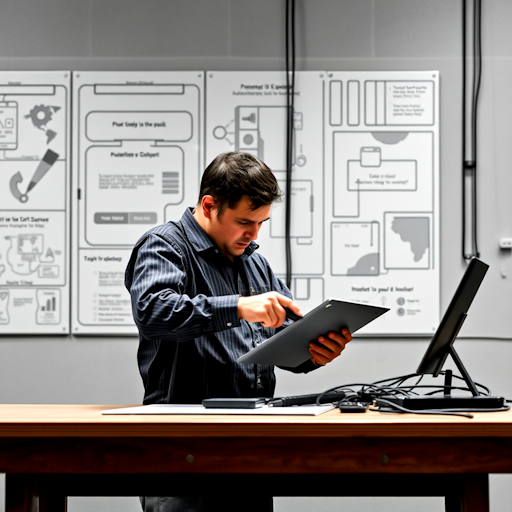
The current debate surrounding AI-generated music has intensified as major players in both the technology and music industries stake out their positions. Industry veterans and artists, including prominent figures like Nick Cave and David Guetta, have voiced contrasting opinions about AI’s role in music creation, with some viewing it as a threat to authentic artistic expression while others embrace it as a revolutionary tool. This discourse has been further fueled by recent developments such as Google’s MusicLM and OpenAI’s MuseNet, which demonstrate increasingly sophisticated capabilities in music generation.
The controversy extends beyond artistic merit to encompass legal and ethical considerations, particularly regarding copyright and intellectual property rights. Questions about whether AI-generated music trained on copyrighted works constitutes fair use have led to heated discussions in both legal circles and creative communities. Music industry organizations, including performing rights societies and publishers, are actively working to establish frameworks for handling AI-generated content, while streaming platforms grapple with policies for distributing and monetizing such works. This ongoing debate reflects broader societal concerns about artificial intelligence’s impact on creative industries and the future of human artistic expression.
A. Algorithm Limitations
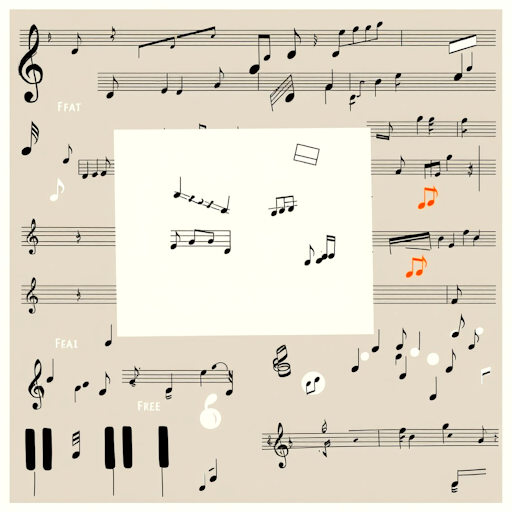
AI music generation algorithms, despite their impressive capabilities, face several fundamental limitations that affect their creative output. These systems primarily operate by analyzing patterns in existing music and reconstructing similar sequences, which can result in compositions that lack genuine innovation or emotional depth. The algorithms are constrained by their training data and struggle to truly understand musical context, often producing technically correct but artistically superficial results that fail to capture the nuanced expressiveness found in human-composed music.
Moreover, current AI systems have difficulty maintaining long-term musical coherence and structural integrity throughout a composition. While they may excel at generating short musical phrases or mimicking specific styles, they frequently struggle with developing complex musical narratives, handling unconventional time signatures, or creating sophisticated harmonic progressions that evolve meaningfully over time. These limitations stem from the fundamental architecture of machine learning models, which prioritize local patterns and statistical relationships over broader musical understanding and intentionality.
B. Sound Quality Issues
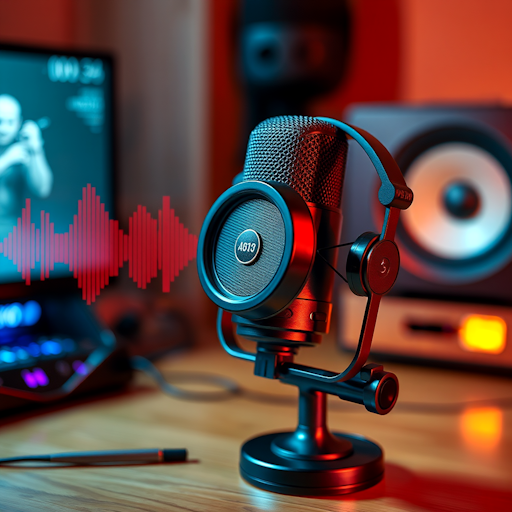
One significant concern regarding AI-generated music lies in the inconsistent sound quality and audio artifacts that often plague these compositions. While AI systems have made remarkable strides in mimicking human musical expression, they frequently struggle with maintaining consistent audio fidelity throughout a piece, particularly in complex arrangements. Common issues include unnatural transitions between instruments, digital distortion in high-frequency ranges, and an overall “synthetic” quality that can detract from the listening experience. These technical limitations become especially apparent when comparing AI-generated music to professionally recorded and mixed human performances.
Moreover, AI systems often face challenges in accurately reproducing the subtle nuances of acoustic instruments and human vocal performances. The dynamic range, timbral variations, and micro-timing adjustments that professional musicians naturally incorporate into their performances remain difficult for AI to replicate convincingly. This results in a somewhat mechanical or artificial sound quality that trained listeners can readily identify. While some of these issues may be addressed through advances in deep learning and audio processing technologies, current AI music generation systems still struggle to match the sonic richness and organic quality of traditional human-produced music.
C. Production Inconsistencies
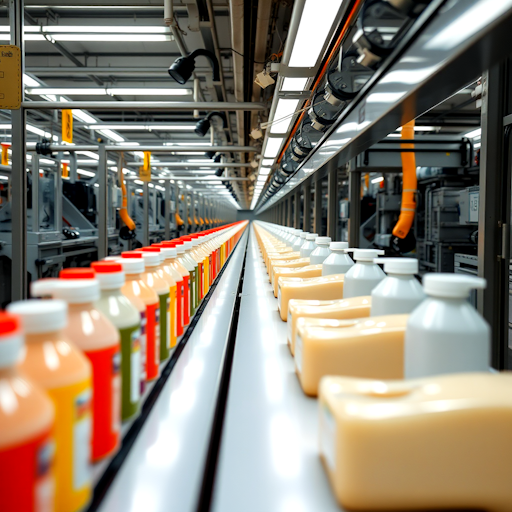
Production inconsistencies represent a significant challenge in AI-generated music, particularly when examining the technical aspects of sound engineering and mixing. While AI systems can generate musical compositions, they often struggle with maintaining consistent production quality throughout a piece, resulting in unnatural variations in elements such as volume levels, stereo imaging, and frequency balance. These inconsistencies can manifest as sudden changes in instrument presence, erratic dynamic ranges, or inappropriate mixing decisions that human audio engineers would typically avoid.
The problem becomes more pronounced when AI attempts to replicate complex production techniques or genre-specific mixing conventions. For instance, an AI might fail to maintain proper headroom throughout a track, or inconsistently apply effects like reverb and compression, leading to a disjointed listening experience. These technical shortcomings are particularly noticeable to audio professionals and discerning listeners, who expect a certain level of production coherence that current AI systems have yet to consistently achieve. While advances in machine learning continue to improve these aspects, the nuanced decision-making involved in professional audio production remains a significant hurdle for AI-generated music.
III. Artistic and Creative Objections

The artistic and creative objections to AI-generated music strike at the heart of what we consider authentic artistic expression. Critics argue that AI compositions, despite their technical proficiency, lack the genuine emotional depth and lived experiences that human musicians naturally infuse into their work. The absence of true consciousness, personal struggle, and emotional intelligence in AI systems means they cannot authentically convey the raw human experiences that have historically made music such a powerful medium of expression.
Furthermore, there are concerns about AI’s creative process being fundamentally derivative, as these systems learn by analyzing existing human-made compositions. Unlike human artists who draw from their unique perspectives and innovative impulses, AI systems are limited to recombining and extrapolating from their training data. This raises questions about whether AI-generated music can ever truly contribute to the evolution of musical art forms or if it merely produces sophisticated imitations that dilute the creative landscape. The argument extends to the potential homogenization of music, as AI systems might inadvertently reinforce existing patterns rather than push boundaries in the way human artists naturally do through their individual creative vision.
A. Loss of Human Expression

The concern over the loss of human expression in AI-generated music strikes at the heart of artistic authenticity. Traditional music creation has always been intrinsically linked to human emotions, lived experiences, and the subtle nuances that come from personal interpretation and performance. When artificial intelligence generates music, it fundamentally lacks the genuine emotional depth and personal narrative that humans naturally infuse into their creative works, instead relying on patterns and statistical analysis of existing musical data.
Critics argue that AI-generated music, despite its technical proficiency, cannot truly capture the raw vulnerability of a heartbreak ballad or the euphoric celebration in a victory anthem because it hasn’t experienced these emotions firsthand. The human element in music creation extends beyond mere note arrangement and encompasses the imperfections, spontaneous variations, and emotional inflections that make each performance unique. These subtle variations, born from human experience and emotional intelligence, are what traditionally have given music its power to forge deep connections with listeners and convey authentic emotional narratives.
B. Originality and Creativity

The debate surrounding AI-generated music’s originality and creativity centers on the fundamental question of whether artificial intelligence can truly create something novel or merely recombine existing patterns in sophisticated ways. Critics argue that AI systems, being trained on existing musical works, are inherently derivative and lack the genuine creative spark that comes from human experience, emotion, and intentionality. They contend that while AI can analyze and replicate patterns from its training data, it cannot truly innovate or express authentic artistic vision in the way human composers do.
Furthermore, the creative process in AI music generation raises questions about the nature of originality itself. While humans draw inspiration from their predecessors and cultural influences, they integrate these influences with personal experiences and emotional depth to create something uniquely their own. AI systems, however, operate through statistical analysis and pattern recognition, potentially leading to outputs that, while technically sophisticated, may lack the subtle nuances and emotional resonance that define truly original human composition. This limitation becomes particularly apparent when examining the ability of AI to break established rules or create revolutionary new musical styles – something that has historically been driven by human creativity and cultural context.
C. Emotional Depth and Connection
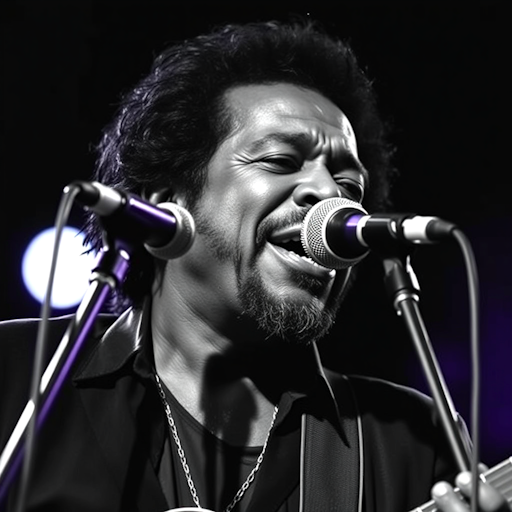
One of the most significant criticisms of AI-generated music centers on its perceived inability to capture genuine emotional depth and forge meaningful connections with listeners. Unlike human composers who draw from personal experiences, emotional trauma, cultural context, and lived experiences, AI systems primarily operate on pattern recognition and mathematical models. Critics argue that while AI can technically replicate the structural elements of emotional expression in music, it lacks the authentic emotional intelligence and consciousness that makes human-created music deeply resonant and transformative.
This limitation becomes particularly evident in genres where emotional authenticity is paramount, such as blues, soul, or intimate singer-songwriter compositions. While AI can analyze and reproduce the technical aspects of these styles—chord progressions, melodic patterns, and typical arrangements—it cannot truly understand the historical weight of suffering in blues music or the personal vulnerability expressed in confessional songwriting. The absence of lived experience and genuine emotional investment may result in music that sounds technically proficient but fails to forge the deep, lasting emotional connections that have historically made music such a powerful medium for human expression and shared experience.
IV. Ethical Considerations

The ethical implications of AI-generated music extend far beyond simple questions of creativity and authenticity. One primary concern centers on the potential displacement of human musicians and composers, as AI systems become increasingly capable of producing commercially viable music at a fraction of the cost and time. This raises important questions about fair compensation, artistic livelihood, and the preservation of musical traditions that have historically relied on human expertise and cultural transmission.
Furthermore, there are significant ethical considerations regarding data usage and intellectual property rights in AI music generation. These systems are trained on vast databases of existing music, often without explicit consent from original artists, leading to debates about appropriation and creative rights. The question of who owns the rights to AI-generated music – the developers, the users, or some hybrid arrangement – remains largely unresolved in many jurisdictions. This legal ambiguity is compounded by concerns about AI systems potentially replicating distinctive elements of human-created works, raising issues of artistic integrity and the need for proper attribution and compensation mechanisms.
A. Copyright and Intellectual Property

The intersection of AI-generated music and copyright law presents complex challenges that the current legal framework struggles to address. Traditional copyright law was designed to protect human creative expression, but AI-generated music blurs the lines between human authorship and machine creation. Questions arise about who owns the rights to AI-generated music: the developers of the AI system, the users who prompt the creation, or potentially the original artists whose works were used to train the AI models.
A particularly contentious issue is the training data used to develop AI music systems. Many AI models are trained on vast libraries of existing music, potentially infringing on copyrighted works without proper licensing or compensation to original artists. This has led to legal disputes and ethical debates about fair use, with some arguing that AI training constitutes transformative use while others maintain that it represents unauthorized exploitation of intellectual property. The music industry’s established mechanisms for royalty collection and attribution become increasingly complicated when AI-generated works incorporate elements from multiple sources in ways that are difficult to trace or quantify.
B. Artist Attribution

Artist attribution in AI-generated music presents a complex challenge that strikes at the heart of creative ownership and recognition. When an AI system creates music by training on existing artists’ works, questions arise about whether and how to acknowledge both the original artists whose works informed the AI’s output and the developers who created the AI system. This becomes particularly problematic when AI-generated music closely mimics specific artists’ styles or incorporates elements that are distinctively associated with certain musicians.
The current legal and ethical frameworks surrounding artist attribution for AI-generated music remain largely undefined, creating potential conflicts between traditional copyright concepts and emerging technological capabilities. While some argue that AI-generated works should credit the original artists whose music was used in training data, others contend that the transformative nature of AI processing creates entirely new works that deserve independent attribution. This debate extends beyond mere technical or legal considerations, touching on fundamental questions about artistic authenticity, creative lineage, and the fair recognition of both human and artificial contributions to musical creation.
C. Fair Compensation

One of the most pressing concerns regarding AI-generated music is the challenge of ensuring fair compensation for human artists and rights holders. As AI systems are trained on vast datasets of existing music, questions arise about whether original artists should be compensated when their works contribute to an AI’s learning process or when AI-generated music bears similarities to their compositions. The current legal and economic frameworks were not designed to address these novel scenarios, leaving a significant gap in how value should be distributed among creators, AI developers, and platforms.
This compensation issue becomes even more complex when considering the potential displacement of session musicians, composers, and producers by AI tools. While AI-generated music may significantly reduce production costs, it also threatens the livelihood of countless music industry professionals who have traditionally earned their income through creative and technical contributions. Furthermore, the absence of clear licensing mechanisms for AI training data and output creates uncertainty about revenue sharing, raising concerns about whether the traditional music industry’s compensation models can adapt to this technological disruption while maintaining fairness for all stakeholders involved.
V. Industry Impact

The rise of AI-generated music has sparked significant concerns about its potential impact on the music industry’s economic ecosystem. Professional musicians, composers, and producers worry that AI-generated content could devalue human-created music, potentially leading to reduced opportunities for work and decreased compensation. This concern is particularly acute in areas like production music, soundtracks, and commercial jingles, where AI systems could potentially replace human composers by offering cheaper, faster alternatives.
Furthermore, the integration of AI music generation tools raises complex questions about industry employment and skill development. While some argue that AI could democratize music creation, critics point out that this could lead to an oversaturated market and diminished appreciation for musical craftsmanship. The potential displacement of session musicians, arrangers, and other music professionals could fundamentally alter the industry’s structure, potentially eliminating valuable apprenticeship opportunities and traditional career paths that have historically nurtured musical talent and innovation.
A. Professional Musicians’ Concerns

Professional musicians have raised significant concerns about AI-generated music’s impact on their livelihoods and creative expression. Many established artists and industry professionals argue that AI music generators, which can produce unlimited tracks at minimal cost, could potentially devalue human-created music and lead to reduced opportunities for working musicians. There are particular concerns about AI systems being trained on copyrighted works without proper compensation or consent, effectively using artists’ lifetime of work and unique styles to create competing content.
Furthermore, professional musicians emphasize that music creation is not just about producing technically correct compositions but involves human emotion, lived experiences, and cultural context that AI currently cannot authentically replicate. They argue that while AI may be able to analyze and reproduce patterns in music, it lacks the genuine artistic intent and emotional depth that comes from human creativity. This has led to ongoing debates about whether AI-generated music should be clearly labeled as such, and how to ensure fair compensation for human artists whose works are used in training these systems.
B. Recording Studios and Producers
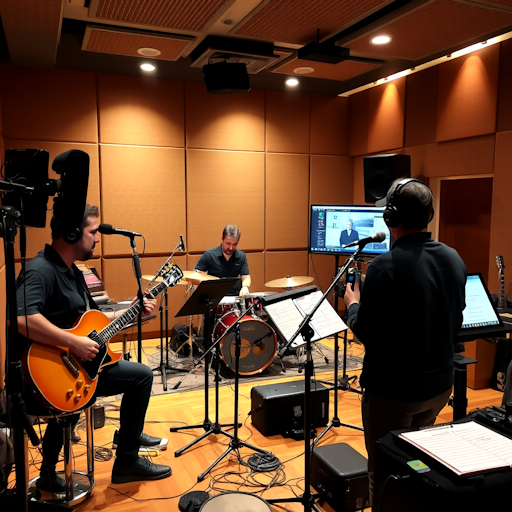
Recording studios and producers face significant challenges with the rise of AI-generated music, as it fundamentally alters the traditional music production landscape. These professionals have invested heavily in specialized equipment, acoustic spaces, and years of expertise to capture and enhance musical performances, yet AI-generated music bypasses many of these established processes. The economic impact on studios is particularly concerning, as AI systems can produce commercially viable tracks without the need for physical recording spaces or traditional production techniques.
Moreover, producers argue that AI-generated music lacks the human element and creative synergy that occurs during studio sessions, where artists and producers collaborate to create unique sonic experiences. Traditional producers serve as both technical experts and creative catalysts, offering invaluable artistic input that shapes the final product. While AI can replicate certain aspects of music production, it cannot replicate the nuanced decision-making, emotional interpretation, and years of experience that professional producers bring to the recording process. This has led to growing concerns about the devaluation of production expertise and the potential loss of jobs in this sector of the music industry.
C. Music Education Impact
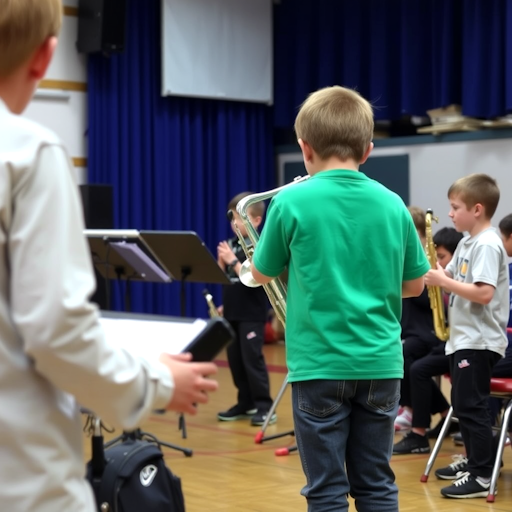
The rise of AI-generated music has sparked concerns about its potential impact on music education and the development of musical skills. Critics argue that readily available AI composition tools might discourage students from investing time in learning traditional music theory, instrumental proficiency, and composition techniques. There’s a legitimate worry that the instant gratification of AI-generated music could undermine the value of the learning process and the deep understanding that comes from years of musical study and practice.
Furthermore, educators express concern about the potential dilution of creative problem-solving skills that are typically developed through traditional music education. While AI tools can serve as valuable supplementary resources, over-reliance on these systems might prevent students from developing crucial abilities such as ear training, understanding harmonic relationships, and grasping the nuances of musical expression. This could lead to a generation of music creators who are dependent on AI assistance rather than developing their own musical intuition and technical foundations.
VI. Cultural Implications
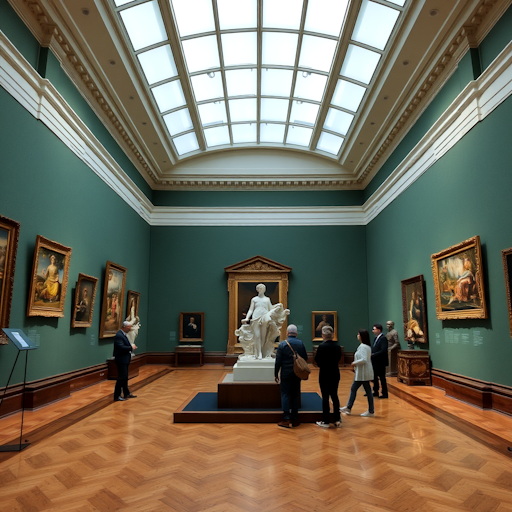
The rise of AI-generated music raises significant concerns about its impact on cultural authenticity and artistic heritage. As algorithms become increasingly capable of mimicking and blending various musical styles, there’s a legitimate fear that the unique cultural expressions and traditions embedded in different musical genres could become homogenized or diluted. Traditional music forms, which often carry centuries of cultural history and social significance, risk being reduced to mere data points for AI systems to process and replicate without true understanding of their deeper cultural meaning.
Moreover, the widespread adoption of AI music generation technology could lead to a standardization of musical output that undermines regional musical identities and cultural diversity. While AI can efficiently produce music that appeals to global audiences, it may inadvertently contribute to cultural flattening, where the nuanced differences between musical traditions begin to disappear. This technological shift also raises questions about the role of human experience and cultural context in musical creation, as AI systems, despite their sophisticated capabilities, cannot truly embody the lived experiences and emotional depths that have historically shaped musical evolution within different cultures.
A. Musical Heritage Preservation

The preservation of musical heritage through traditional human composition and performance practices represents a critical cultural concern in the age of AI-generated music. As artificial intelligence becomes more prevalent in music creation, there are growing concerns about the potential dilution or displacement of established musical traditions, cultural-specific techniques, and the intricate human knowledge passed down through generations of musicians and composers.
This preservation challenge extends beyond mere documentation of musical styles; it encompasses the protection of the subtle nuances, emotional depths, and cultural contexts that human musicians inherently bring to their craft. Traditional music-making often involves specific cultural practices, oral histories, and community-based learning that AI systems, despite their sophistication, cannot fully replicate or maintain. The risk lies not only in the potential loss of these traditions but also in the gradual erosion of the human connections and cultural significance that make musical heritage a living, breathing part of human society.
B. Genre Authenticity
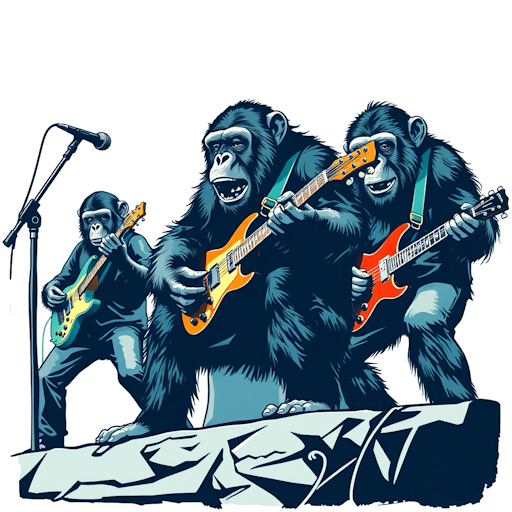
Genre authenticity in AI-generated music presents a unique challenge, as musical genres often emerge from specific cultural, historical, and social contexts that AI systems may struggle to fully comprehend or replicate. Critics argue that AI-generated music, while technically proficient, often lacks the subtle nuances, emotional depth, and cultural significance that define authentic genre expressions. For instance, genres like blues, jazz, or regional folk music carry within them generations of human experience, struggle, and cultural evolution that may be impossible to genuinely recreate through algorithmic processes alone.
Furthermore, the authenticity debate extends to the way AI systems learn and synthesize genre-specific elements. While AI can analyze and mimic structural patterns, chord progressions, and typical instrumentation of a genre, it may fail to capture the improvisational spirit, raw emotion, or subtle stylistic variations that human musicians develop through lived experience and cultural immersion. This limitation becomes particularly apparent in genres where authenticity is closely tied to personal narrative, cultural identity, or specific historical contexts, raising questions about whether AI-generated music can ever truly contribute to the genuine evolution of established musical genres.
C. Cultural Appropriation Risks
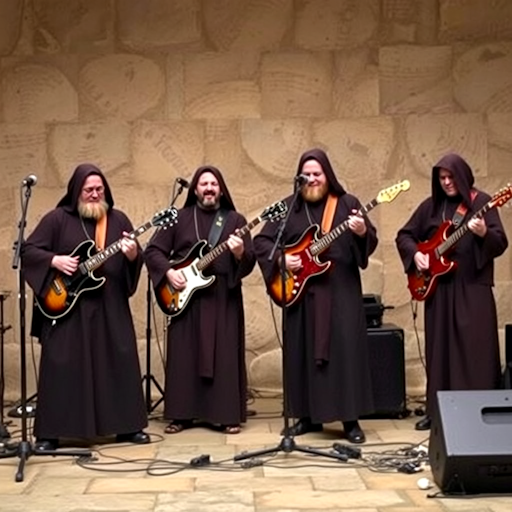
AI-generated music raises significant concerns regarding cultural appropriation, particularly when these systems draw from and remix traditional, sacred, or culturally significant musical elements without proper context or respect for their origins. Unlike human artists who may engage in conscious cultural exchange and collaboration, AI systems lack the cultural awareness and sensitivity to understand the deep historical, spiritual, or social significance of the musical traditions they sample and reproduce. This can lead to the inadvertent misuse or distortion of culturally important musical elements.
The risk becomes especially pronounced when AI systems are trained on datasets that include indigenous music, traditional ceremonial songs, or culturally protected musical forms without proper consultation or consent from the communities of origin. These systems can generate content that superficially mimics sacred or traditional music while stripping it of its cultural context and meaning, potentially contributing to the commodification and dilution of cultural heritage. This technological appropriation raises ethical questions about ownership, attribution, and the preservation of cultural authenticity in an era where AI can seamlessly blend and transform musical traditions.
VII. Economic Consequences

The economic implications of AI-generated music present significant challenges to the traditional music industry ecosystem. As AI systems become increasingly capable of producing commercially viable music, there are legitimate concerns about displacement of human musicians, composers, and producers. Industry professionals worry that music labels and streaming platforms might favor AI-generated content due to lower production costs and the absence of royalty obligations, potentially reducing opportunities and compensation for human artists.
The ripple effects extend beyond individual creators to impact the broader music economy. Recording studios, session musicians, music educators, and various support services could face reduced demand as AI alternatives become more prevalent. While proponents argue that AI tools could democratize music creation and open new revenue streams, critics point out that the technology’s widespread adoption could lead to market saturation and devaluation of musical content. This economic disruption raises important questions about the need for new compensation models, rights management frameworks, and industry regulations to ensure a sustainable balance between technological innovation and the livelihoods of music professionals.
A. Job Displacement

The concern over job displacement due to AI-generated music represents one of the most pressing economic challenges facing the music industry today. As AI technologies become increasingly sophisticated in composing, arranging, and producing music, there is legitimate apprehension about the potential displacement of human composers, session musicians, producers, and arrangers. This anxiety is particularly acute in sectors such as production music libraries, commercial jingles, and background music for media, where AI systems can already generate serviceable content at a fraction of the cost and time required by human professionals.
The impact of AI on music-related employment extends beyond direct creative roles. Sound engineers, mixing specialists, and even music supervisors may find their roles significantly altered or diminished as AI systems become more capable of handling technical aspects of music production and selection. While proponents argue that AI will create new job opportunities and serve as a tool to enhance human creativity rather than replace it, historical precedent from other industries suggests that technological automation often leads to a net reduction in traditional employment opportunities, even as it creates new specialized roles. This transformation could fundamentally reshape the economic landscape of the music industry, potentially affecting thousands of professionals who have built careers around traditional music creation and production methods.
B. Market Saturation

The concern of market saturation in AI-generated music represents a significant challenge to the music industry’s ecosystem. As AI tools become increasingly accessible and sophisticated, there is a legitimate fear that the market could become flooded with computer-generated compositions, making it exponentially more difficult for human artists to gain visibility and maintain sustainable careers. This democratization of music production, while innovative, threatens to create a signal-to-noise ratio problem where quality human-created content becomes buried under an avalanche of AI-generated tracks.
The potential for market saturation is further complicated by the speed and volume at which AI can produce music. While human artists might spend weeks or months crafting a single song, AI systems can generate hundreds of tracks in a matter of hours. This disparity in production capacity could lead to streaming platforms becoming oversaturated with AI content, potentially affecting recommendation algorithms and royalty distributions. Moreover, this flood of content could devalue music as a whole, as the perceived scarcity and human effort traditionally associated with music creation diminishes in the face of automated mass production.
C. Revenue Distribution

The revenue distribution landscape for AI-generated music presents complex challenges that threaten traditional compensation models in the music industry. As AI systems create music using training data derived from existing works, questions arise about how to fairly compensate original artists whose styles and compositions contribute to the AI’s capabilities. Current licensing frameworks and royalty systems weren’t designed with AI-generated content in mind, leaving a significant gap in how revenues should be allocated among AI developers, original artists, and platforms distributing AI-created music.
This uncertainty is further complicated by the scale and speed at which AI can produce music, potentially flooding markets with content that could devalue human-created works. Traditional revenue streams, such as performance rights and mechanical royalties, may become increasingly difficult to track and distribute when AI systems can generate thousands of songs in minutes. Additionally, the absence of clear legal precedents regarding copyright ownership of AI-generated music creates challenges in determining who holds rights to revenues generated from such content, potentially leaving many stakeholders, particularly human musicians and composers, at a significant financial disadvantage.
VIII. Conclusion: Future of AI in Music
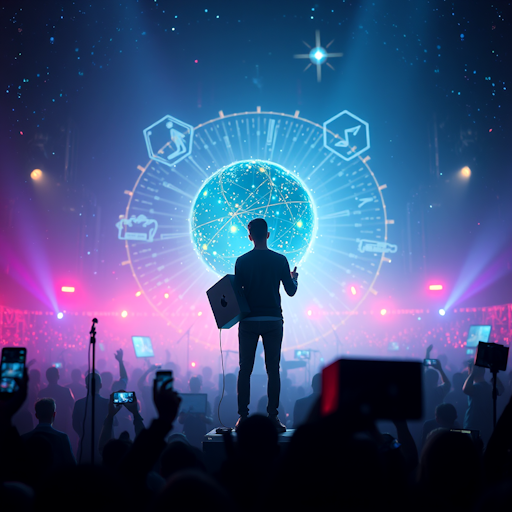
The future of AI in music represents a complex intersection of technological advancement and artistic expression. While concerns about AI-generated music are valid, it’s becoming increasingly clear that artificial intelligence will serve as a complementary tool rather than a replacement for human creativity. The technology is likely to evolve into a sophisticated collaborative partner, enabling musicians to explore new sonic territories, streamline production processes, and push the boundaries of musical innovation.
As we move forward, the key to successful integration of AI in music will depend on striking a balance between technological capabilities and human artistry. The industry is trending toward hybrid approaches where AI assists in certain aspects of music creation while preserving the essential human elements that give music its emotional depth and cultural significance. This evolution will likely lead to new genres, novel creative workflows, and expanded opportunities for both established and emerging artists, while maintaining the irreplaceable value of human creativity and emotional expression in musical composition.
A. Balancing Innovation and Tradition

The tension between technological innovation and musical tradition presents a crucial challenge in the AI music generation debate. While AI systems offer unprecedented capabilities to create, manipulate, and experiment with sound, there are legitimate concerns about preserving the cultural and artistic heritage that traditional music-making represents. This balance becomes particularly delicate when considering how AI-generated music might influence established musical forms, genres, and performance practices that have evolved over centuries.
The key to addressing this challenge lies in viewing AI not as a replacement for traditional music-making, but as a complementary tool that can enhance and expand musical possibilities. Successful integration of AI music technology requires careful consideration of how these systems can respect and build upon existing musical traditions while fostering innovation. This might involve developing AI systems that can learn from and incorporate traditional musical elements, while still allowing for creative exploration and advancement of new musical frontiers. The goal should be to create a symbiotic relationship where both traditional methods and AI-driven approaches can coexist and enrich the overall musical landscape.
B. Recommendations for Coexistence
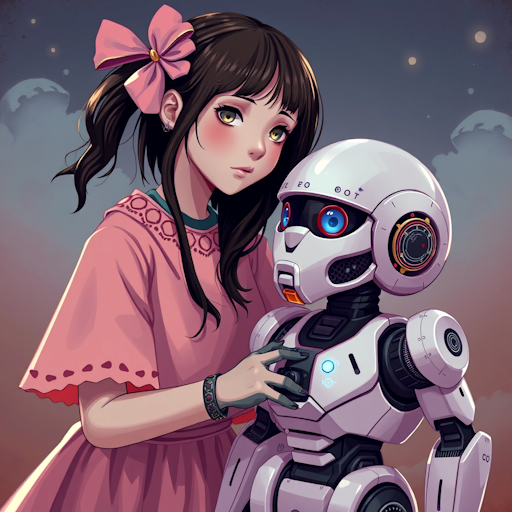
For the music industry to successfully navigate the integration of AI-generated music, establishing clear frameworks for coexistence between human and artificial creators is essential. This includes developing transparent labeling systems for AI-generated content, implementing fair compensation models that acknowledge both human and AI contributions, and creating industry standards that protect artists’ rights while fostering innovation. Professional organizations and industry stakeholders should collaborate to establish ethical guidelines that promote responsible AI development while preserving the authenticity and value of human creativity.
To achieve meaningful coexistence, the music industry must also invest in education and training programs that help musicians adapt to and leverage AI technologies effectively. This could involve teaching artists how to use AI as a complementary tool rather than viewing it as a replacement, developing hybrid creation workflows that combine human artistry with AI capabilities, and establishing clear boundaries between AI-assisted and fully AI-generated works. Additionally, platforms and distributors should implement verification systems that maintain transparency about the origin of musical content while ensuring fair revenue distribution among all contributors, whether human or artificial.
